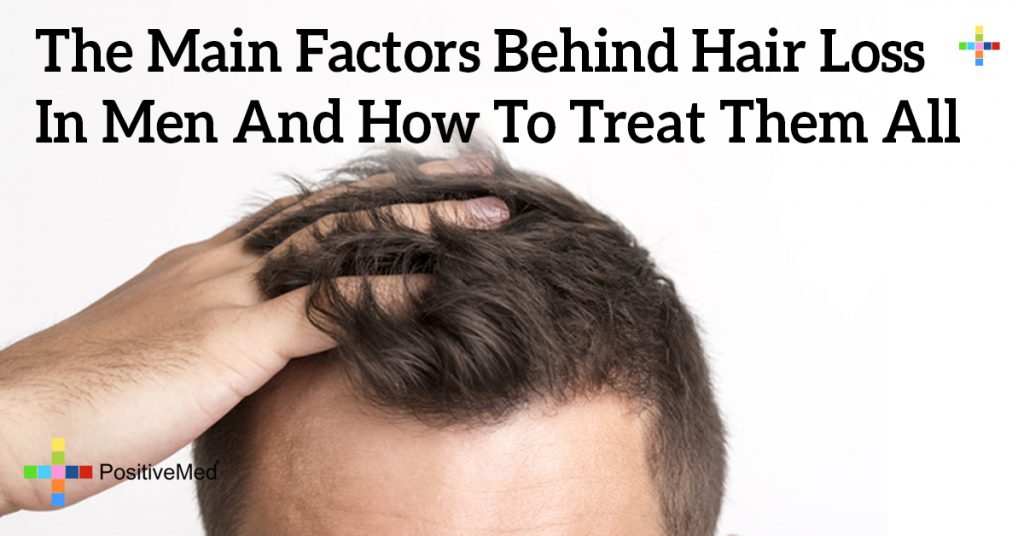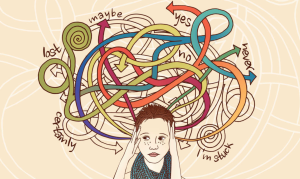
The Main Factors Behind Hair Loss in Men and How to Treat Them All
As most men get older, they slowly begin to lose more and more of their hair. This may happen in the form of thinning, bald patches or a receding hairline. According to the American Hair Loss Association, two-thirds of men experience some form of hair loss as quickly as age 35, and the causes can range from genetics to medical conditions. There are many different types of hair loss with various causes. Find out some of the most common reasons for male hair loss and how they can be treated.

Male Pattern Baldness
The most common reason behind hair loss in men is typical male pattern baldness. This is the type that causes the common U-shaped pattern usually seen on older men. Many believe this type of balding to be caused or exacerbated by stress, but it’s actually caused by genetics with influence from both the mother’s and father’s genes.
The best treatment for this type of baldness is a prescription known as Finasteride, and it works for 90 percent of those treated. It works by decreasing the levels of the hormone DHT in the body, and it can reduce levels in the scalp by as much as 60 percent.
Age
At some point, losing hair is inevitable as one grows older. Hair loss and/or thinning is experienced by both men and women as they get older. From the age of 30 on, hair development begins to slow in growth rate and a decrease in volume. While there is no way to completely avoid hair loss with age, it can be treated to reduce the effects or slow down the process. Options such as prescription pills, Minoxidil lotion and hair transplant surgery are all effective treatments. Some people choose to embrace the changes in hair and wear styles that better accommodate the remaining hair patterns.
Stress
Though it can be one of the many causes, stress is rarely a strong reason for hair loss. One type of hair loss, known as telogen effluvium, can be caused by sudden and/or prolonged intense emotional or physical stress. This hair loss takes the pattern of widespread thinning across the scalp as opposed to hair receding from the front hairline. The best way to treat this issue is to eliminate the stressor when possible. This could be a medication, medical condition, lifestyle situation or many other factors. If this isn’t a viable option, methods such as meditation, therapy or physical exercise, among others, can help reduce the stress. Hair may return to normal as quickly as six months.
RELATED ARTICLE: DIY Homemade Onion Juice and Honey Hair Loss Treatment
Diet
Every part of the body relies on nutrients to grow and thrive in a healthy fashion. When it must endure changes such as shifts in diet, sudden weight loss or low iron levels, temporary shedding or hair loss may result. The only solution for this type of hair loss is returning to a healthy and balanced diet. The most important nutrients to restore hair are protein, biotin, iron and zinc. Consuming legumes that are high in protein such as lentils and kidney beans is a good start.
Styling
Many hairstyles can be damaging to the scalp and follicles. Certain trends in male styling such as ponytails, buns, braiding and those resulting in overuse of styling products that lock hair in place can pull the hair too tightly. If the roots of the hair become damaged, hair loss is certain to occur. The best way to avoid this is to abstain from engaging in damaging styles that pull the hair too taut or can be damaging to the hair itself. Hair should remain conditioned and moisturized on a regular basis, especially if receiving color or chemical treatments.
Dermatitis
Seborrheic dermatitis is a harmless skin condition that can occur on the scalp in some instances. It is characterized by small, itchy red patches caused by inflammation in the body. If inflamed for long periods or scratched regularly, it can lead to loss of hair in large patches where the skin is affected. The best way to combat the condition is to try to avoid scratching as the resulting cuts in the skin can lead to infection and further inflammation. Treatment should be sought to correct the skin condition and its inflammatory cause first. Once the scalp begins to heal, hair growth should pick up again.
Psoriasis
Psoriasis is a well-known skin condition that can also affect the scalp. Sometimes mistaken for dandruff, the disease causes an overproduction of skin cells that results in the presence of large white flakes. Psoriasis can sometimes damage the hair follicles and lead to temporary hair loss. If the condition is known or suspected, medical treatment should be sought. Medicated shampoos can help lessen the condition, and this will eventually allow hair to return to normal.
For a man, having a thick head of hair is a sign of strength, power and youth in most people’s eyes. Because of this burden, the inevitable occurrence of hair loss is something most would like to avoid or reverse. Luckily, hair loss treatments become more advanced with time, but the factors behind the loss should be determined in order to get the best treatment.
For a man, having a thick head of hair is a sign of strength, power and youth in most people’s eyes. Because of this burden, the inevitable occurrence of hair loss is something most would like to avoid or reverse. Luckily, hair loss treatments become more advanced with time, but the factors behind the loss should be determined in order to get the best treatment.





